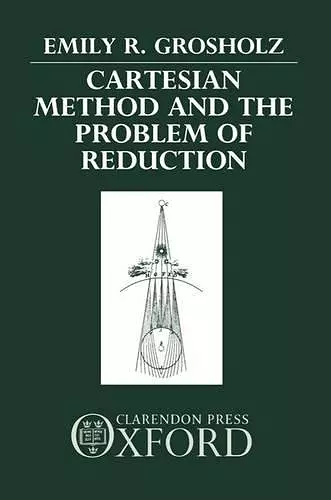Cartesian Method and the Problem of Reduction
Format:Hardback
Publisher:Oxford University Press
Published:31st Jan '91
Currently unavailable, and unfortunately no date known when it will be back

Cartesian method, construed as a way of organizing domains of knowledge according to the `order of reason', was a powerful reductive tool. Descartes produced important results in mathematics, physics, and metaphysics by relating certain complex items and problems back to simpler elements that serve as starting points for his inquiries. However, his reductive method also impoverished these domains in important ways, for it tended to restrict geometry to the study of straight line segments, physics to the study of ambiguously constituted bits of matter in motion, and metaphysics to the study of the isolated, incorporeal knower. This book examines in detail the impact, negative and positive, of Descartes's method on his scientific and philosophical enterprises, exemplified by the Geometry, the Principles, the Treatise of Man, and the Meditations.
'a sophisticated work connected by a coherent perspective or specific thesis' Roger Ariew, Virginia Polytechnic Institute and State University, Mind, Vol. 101, No. 402, April 1992
'the fundamental thesis does capture something which is clearly at work in Descartes, and it has exactly the consequences for Descartes' work which the author explains' Desmond M. Clarke, University College, Cork, British Journal for the History of Science, 25
ISBN: 9780198242505
Dimensions: 223mm x 144mm x 18mm
Weight: 353g
170 pages